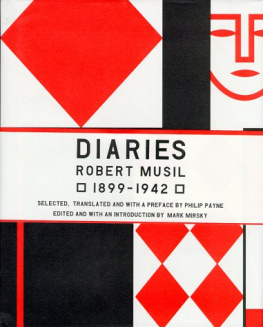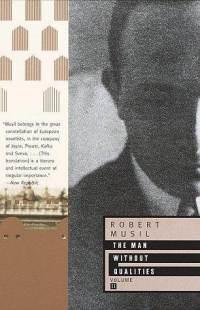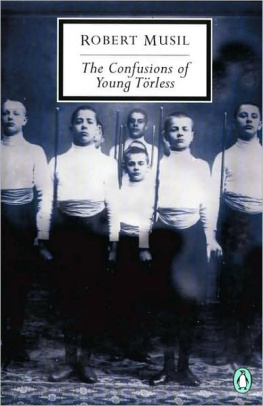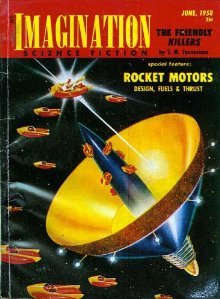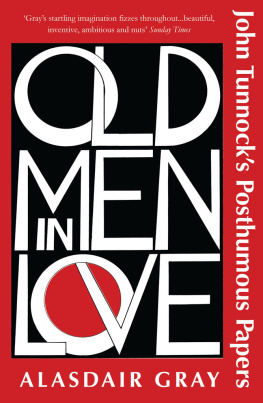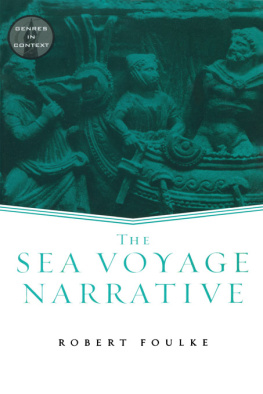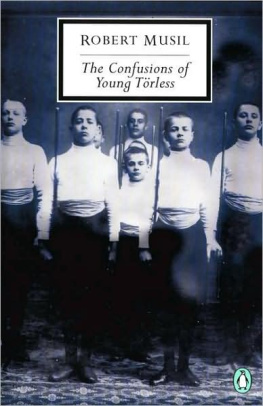Robert Musil - Posthumous Papers of a Living Author
Here you can read online Robert Musil - Posthumous Papers of a Living Author full text of the book (entire story) in english for free. Download pdf and epub, get meaning, cover and reviews about this ebook. year: 0, publisher: Archipelago Books, genre: Art. Description of the work, (preface) as well as reviews are available. Best literature library LitArk.com created for fans of good reading and offers a wide selection of genres:
Romance novel
Science fiction
Adventure
Detective
Science
History
Home and family
Prose
Art
Politics
Computer
Non-fiction
Religion
Business
Children
Humor
Choose a favorite category and find really read worthwhile books. Enjoy immersion in the world of imagination, feel the emotions of the characters or learn something new for yourself, make an fascinating discovery.

- Book:Posthumous Papers of a Living Author
- Author:
- Publisher:Archipelago Books
- Genre:
- Year:0
- Rating:5 / 5
- Favourites:Add to favourites
- Your mark:
- 100
- 1
- 2
- 3
- 4
- 5
Posthumous Papers of a Living Author: summary, description and annotation
We offer to read an annotation, description, summary or preface (depends on what the author of the book "Posthumous Papers of a Living Author" wrote himself). If you haven't found the necessary information about the book — write in the comments, we will try to find it.
Playful reflections on humanity and art. A quest for the essential and voyage into the minute.
Posthumous Papers of a Living Author — read online for free the complete book (whole text) full work
Below is the text of the book, divided by pages. System saving the place of the last page read, allows you to conveniently read the book "Posthumous Papers of a Living Author" online for free, without having to search again every time where you left off. Put a bookmark, and you can go to the page where you finished reading at any time.
Font size:
Interval:
Bookmark:

Copyright 2006 Archipelago Books
English translation copyright 1987 Peter Wortsman
Nachlass zu Lebseiten 1957 Rowohlt Verlag GmbH, Hamburg
Third Edition
First English edition by Eridanos Press, 1987
Penguin UK, 1995
All rights reserved. No part of this book may be reproduced or transmitted in any form without the prior written permission of the publisher.
Library of Congress Cataloging-in-Publication Data
Musil, Robert, 18801942.
[Nachlass zu Lebzeiten. English]
Posthumous papers of a living author / by Robert Musil ; translated from the German by Peter Wortsman. 2nd ed.
p. cm.
ISBN 978-1-9357-4448-1 (alk. paper)
I. Wortsman, Peter. II. Title.
PT2625.U8A6 2006
833.912 dc222006003177
Archipelago Books
25 Jay Street, #203
Brooklyn, NY 11201
www.archipelagobooks.org
Distributed by Consortium Book Sales and Distribution
1045 Westgate Drive
St. Paul, MN 55114
www.cbsd.com
Cover photo: Martin Munkacsi, Children (Kissingen), 1929
Copyright Estate of Martin Munkacsi
This publication was supported by Lannan Foundation and the New York State Council on the Arts, a state agency.

Why posthumous papers? Why of a living author?
There are poetic estates that also happen to be great gifts; but as a rule, literary legacies bear a suspicious resemblance to everything-must-go store clearance sales and cheap bargains. The popularity that such work nonetheless enjoys may indeed derive from the fact that the reading public has a forgivable weakness for a poet who for the last time lays claim to their attention. However the case may be, and whatever questions may arise as to whether such a legacy may be truly worthwhile or merely of some worth, might lead one to suppose I, at any rate, have decided to forestall publication of my own last literary effects before the time comes when I will no longer have a say in the matter. And the most dependable way to make sure of this is to publish it myself while still alive, whether this makes sense to everyone or not.
But can a poetGerman nation long since outlived himself? It certainly looks that way, and strictly speaking, as far back as I can think, it has always looked that way; the situation has only recently entered a decisive chapter. The age that brought out the pre-fab custom-made shoe, and the tailor-made suit to fit all sizes, also appears to want to bring out the pre-fab poet, who is put together out of ready-made inner and outer parts. Almost everywhere these days, the made-to-measure poet lives completely cut off from life, but even so does not share with the dead the ability to do without roof, food, and drink. Life is so kind to a posthumous request! This fact has had some bearing on the title I chose for this little book and on its creation.
One ought naturally to go about selecting ones last words with that much more care, even if their finality is only a sham. To publish nothing but little tales and observations amidst a thundering, groaning world; to speak of incidentals when there are so many vital issues; to vent ones anger at phenomena that lie far off the beaten track: this may doubtless appear as weakness to some, and I will readily admit that I had all kinds of doubts regarding the decision to publish. But then a certain difference in size has always existed and this had somehow to be taken into consideration between the weight of poetic utterances and the six thousand, two-hundred-million-cubic-foot mass of earth that zooms through space untouched by poetry. Second, I trust that I may be permitted to refer back to my major opus, which may suffer less from the lack of cohesive structure perhaps so evident here. Continued work on that book meanwhile demanded that I publish this book. And finally: When this book was suggested to me, and the little parts out of which it was to be constructed lay once again before me, I recognized, or so I thought, that they were after all more durable than I had feared.
Almost all of these little pieces were written and published between 1920 and 1929; but a number of them, those called Pictures in the table of contents, derive from earlier efforts. Such is the case with Flypaper, which appeared in a magazine as far back as 1913 under the title of Roman Summer; and Monkey Island also dating back to that time, which I mention here because one could otherwise take them for fabricated revisions based on later circumstances. In fact, they were actually a look ahead, directed toward flypaper and a cohabitation of apes; but such prophecies are likely to occur to every man who observes human life in the tiny traits by which it carelessly reveals itself, to every man who pays attention to the loitering sensibilities, which, apparently, up until a certain hour that stirs them up, have nothing to say and harmlessly express themselves in our actions and our choice of surroundings.
Something similar, though largely in the opposite sense, might likewise be alleged in defense of Ill-tempered Observations and Unstorylike Stories. They visibly wear the historical moment of their inception, and the mockery in them refers back in part to bygone days. Their form also reveals their background, for they were written for newspapers, with their inattentive, motley, inordinately large readerships. No doubt they would have turned out otherwise had I written them, as I did my books, with just myself and my friends in mind. Here, in particular, was the question that had to be answered: Is it permissible to republish this sort of thing? Any revision would have necessitated sketching it all afresh. I had to refrain totally from doing this, except that here and there I retouched some parts that didnt work in the sense of my original conception. Thus at times we really are speaking of shadows here, of a life that no longer exists; and furthermore, in some mildly annoying way we are speaking of a life that can lay no claims to conclusiveness. The faith that I nonetheless place in the durability of these little satires derives from a line of Goethes that may without forfeit of truth be modified to suit my purpose. So it reads: In one thing done badly you can see the simile of all things done badly. This line offers a ray of hope that the critique of little errors may not be rendered obsolete, even in times when so much larger errors are being made.
The English language offers no adequate equivalent to the German Dichter, a term that encompasses poetic as well as prose stylists whose work constitutes high art. The word Poet is as close as we can get. This, in any case, is the decision we have followed throughout the book. (Translators note.)
Tangle-foot flypaper is approximately fourteen inches long and eight inches wide; it is coated with a yellow poison paste and comes from Canada. When a fly lands on it not so eagerly, more out of convention, because so many others are already there it gets stuck at first by only the outermost joints of all its legs. A very quiet, disconcerting sensation, as though while walking in the dark we were to step on something with our naked soles, nothing more than a soft, warm, unavoidable obstruction, and yet something into which little by little the awesome human essence flows, recognized as a hand that just happens to be lying there, and with five ever more decipherable fingers, holds us tight.
Here they stand all stiffly erect, like cripples pretending to be normal, or like decrepit old soldiers (and a little bowlegged, the way you stand on a sharp edge). They hold themselves upright, gathering strength and pondering their position. After a few seconds theyve come to a tactical decision and they begin to do what they can, to buzz and try to lift themselves. They continue this frantic effort until exhaustion makes them stop. Then they take a breather and try again. But the intervals grow ever longer. They stand there and I feel how helpless they are. Bewildering vapors rise from below. Their tongue gropes about like a tiny hammer. Their head is brown and hairy, as though made of a coconut, as manlike as an African idol. They twist forward and backward on their firmly fastened little legs, bend at the knees and lean forward like men trying to move a too-heavy load: more tragic than the working man, truer as an athletic expression of the greatest exertion than Laocon. And then comes the extraordinary moment when the imminent need of a seconds relief wins out over the almighty instincts of self-preservation. It is the moment when the mountain climber because of pain in his fingers willfully loosens his grip, when the man lost in the snow lays himself down like a child, when the hunted man stops dead with aching lungs. They no longer hold themselves up with all their might, but sink a little and at that moment appear totally human. Immediately they get stuck somewhere else, higher up on the leg, or behind, or at the tip of a wing.
Next pageFont size:
Interval:
Bookmark:
Similar books «Posthumous Papers of a Living Author»
Look at similar books to Posthumous Papers of a Living Author. We have selected literature similar in name and meaning in the hope of providing readers with more options to find new, interesting, not yet read works.
Discussion, reviews of the book Posthumous Papers of a Living Author and just readers' own opinions. Leave your comments, write what you think about the work, its meaning or the main characters. Specify what exactly you liked and what you didn't like, and why you think so.

